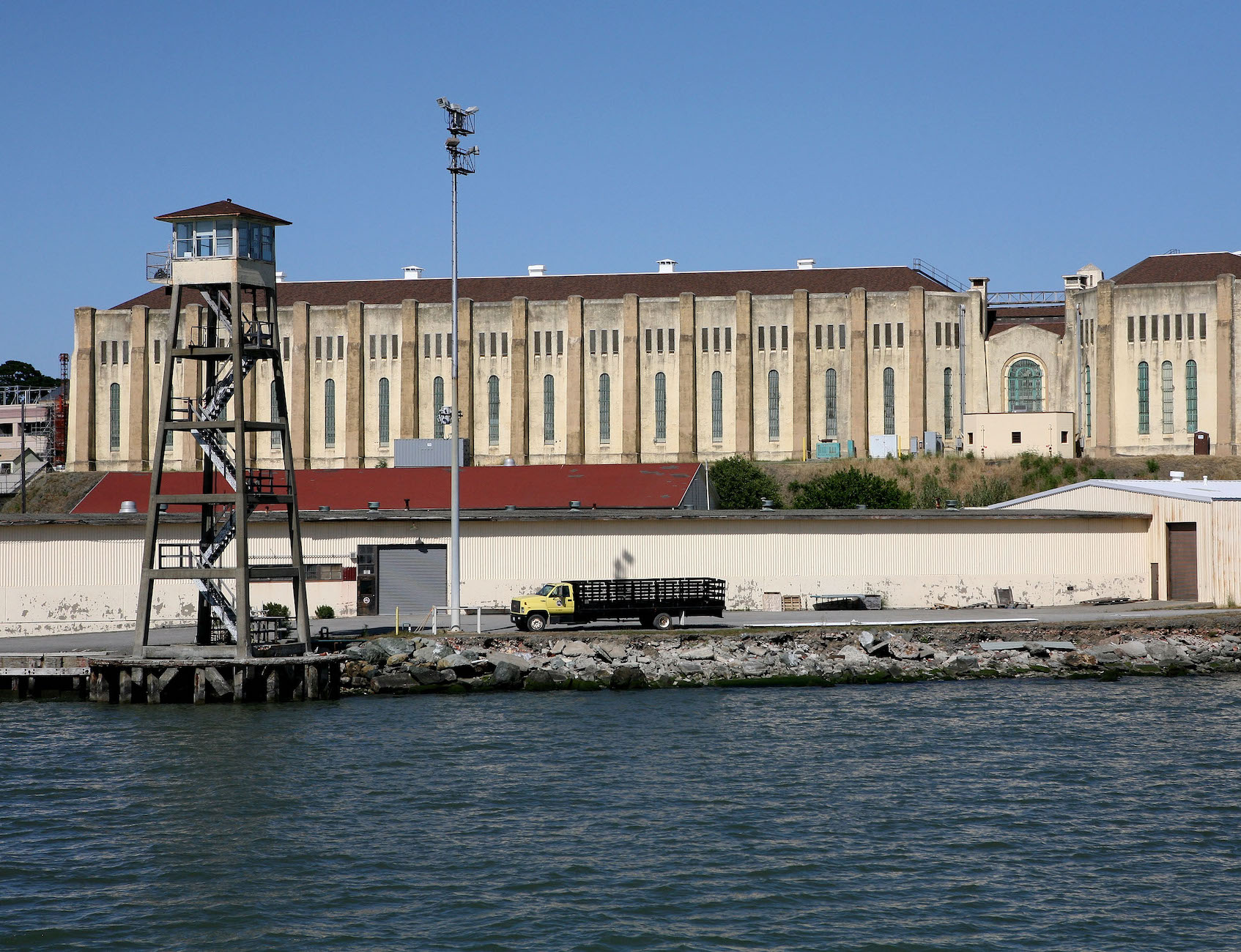How Coronavirus is Changing Life Inside San Quentin State Prison
“They are treating it like any epidemic in prison—that is to isolate, treat and then release back to the population.”

Juan Moreno Haines is an award-winning incarcerated journalist and a member of the Society of Professional Journalists.
A staff member at California’s San Quentin State Prison has tested positive for COVID-19. On Thursday, nurses made rounds checking prisoners’ temperatures with thermal temperature gauges.
The San Quentin administration issued a program status report saying that North Block and West Block “remain on medical quarantine to manage exposure to influenza.”
All prisoners in Badger Section were also placed on quarantine, and all three units were closed to intake, the report said.
“All three units are precluded from all recreational activity and visiting. Medical distribution will continue at pill pass with an emphasis on social distancing (recommended 6 feet between individuals).”
Prisoners from the affected units who display symptoms would wear masks when escorted to the medical building, the report said. Those from the affected units would be kept in separate waiting areas, away from the rest of the prison population, it said. Medical appointments for everyone residing in those units would be reviewed and based on medical necessity.
“Only critical workers assigned to healthcare, facility maintenance, food service, canteen, receiving and release, and prison industry authorities shall be released to work assignment after being screened by medical staff,” it said. “Phones, including legal phone calls, are allowed with cleaning between uses. Shower groups will be separated by bars, front and back. Critical workers are allowed daily showers when returning from work assignment. Packages and canteen will be delivered to the housing unit.”
Quarantines had already begun at the prison weeks before.
As San Quentin prepared for its daily prisoner count on March 14, a correctional officer asked over the PA in North Block for prisoners to volunteer to serve the evening meal. They needed new volunteers because West Block was quarantined. She then called the names of about a dozen men, mostly breakfast shift workers, to join the volunteers.
All California state prisons were closed to visitors. The San Quentin administration issued a program status report saying that all prisoners in West Block and Badger Section “are on modified program to manage exposure to influenza virus-like symptoms.”
Prisoners in those units “are to be separated at all times, from all other inmates housed outside of the aforementioned housing units,” the report said. “West Block and Badger Section will be cell fed.”
“As far as the coronavirus, they are treating it like any epidemic in prison—that is to isolate, treat and then release back to the population,” said Christopher Scull, the Inmate Advisory Council (IAC) president at San Quentin. He met with San Quentin’s chief medical examiner, public health nurse and San Quentin administration about the prevention measures being taken in the prison.
Scull said that the administration told them that San Quentin’s infectious disease preparedness included stockpiling bar soap, disinfectant and toilet paper. A broadcast produced by the Centers for Disease Control and Prevention was also played on the prison’s closed circuit television network, describing COVID-19, its symptoms, and ways to avoid catching it. It included an FAQ in English and Spanish.
“They are taking more advice from the population as far as what should be our priorities,” Scull said. He added that most prisoners were concerned about getting vendor packages and having access to the prison canteen.
Robert Russell, 54, knows how easy it is to get sick inside San Quentin. He currently works as a teacher’s aide in San Quentin’s education department.
Russell first came to San Quentin for reception in 1996, before being moved elsewhere. Within two weeks, he said he got “the San Quentin bug.”
“It starts off like a cold, then flu-like symptoms last for 10-20 days,” Russell said. “It was common knowledge that anyone that comes here is going to get the bug.”
In the days after the W.H.O. declared COVID-19 a pandemic, prisoners housed in North Block and the dormitory (H-Unit) continued to report to work and rehabilitative programs.
But some rehabilitative programs began suspending operations.
On March 12, Mount Tamalpais School issued a statement to its more than 300 incarcerated students that partially read:
“We made the very difficult decision this week to temporarily suspend the college program while COVID-19 is flaring in California. This highly contagious coronavirus can be particularly dangerous for vulnerable populations, and with a 14-day incubation period it is not always visible in carriers. Our presence inside the prison puts our students at risk, even if the prison is not on quarantine, and above all we want the incarcerated population at San Quentin to stay healthy.”
The following day, Guiding Rage Into Power (GRIP), an anger management program, evaluated information from “reliable sources” and decided to postpone classes for the next 2-4 weeks, or until further notice.
The GRIP message to its participants partly read:
“After careful weighing, we have decided that, though we might be willing to take the risk of exposing ourselves, we should not be willing to risk compromising your health by possibly bringing in the contagious virus from the outside. Our decision is made on the basis of care and wisdom, not fear or panic.”
Before the weekend was over, several other programs suspended operations, and new rules were issued for parole hearings.
“Observers, representatives from the prosecuting agency, victims and victims’ next of kin are not permitted to appear personally at parole considerations,” Jennifer Shaffer, executive officer of the Board of Parole Hearings, said in a statement. “However, they may appear by telephone or video conference.”
“While we appreciate that these are not ideal arrangements, we are obliged to limit the number of people at parole consideration hearings, minimize travel via common carriers and lodging, and adhere to social distancing recommendations as much as possible,” the statement read.
